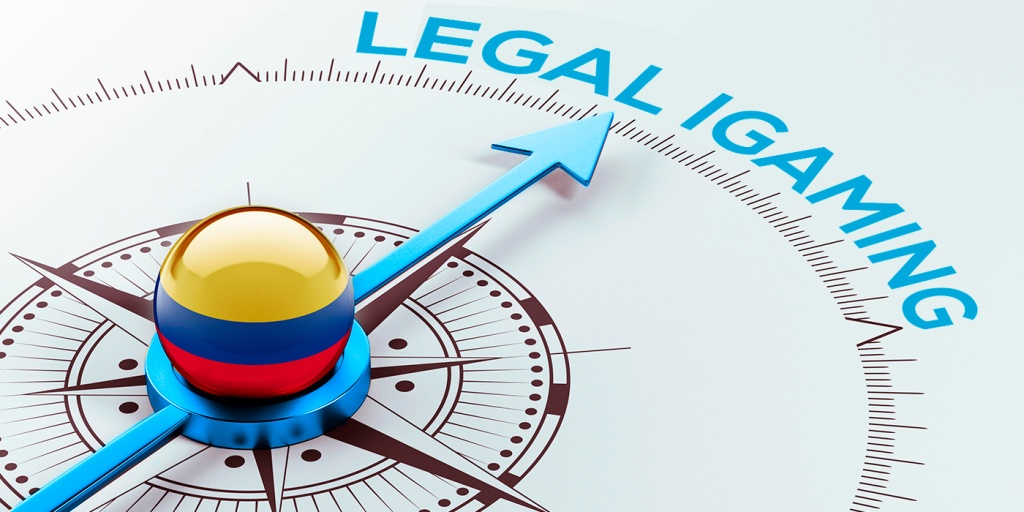Overview Navigating Colombian Gambling Laws: A Guide for iGaming Operators in 2024
Colombia's thriving online gambling market presents substantial opportunities for iGaming operators in 2024, distinguished by its stable and accessible regulatory framework. Gambling has a rich history in Colombia, evolving from informal pastimes to formal legalisation in 1943. Key regulatory milestones include the creation of ETESA in 1993, its dissolution, and the formation of Coljuegos in 2011, which now serves as the primary regulatory authority. The 2016 eGaming Act was pivotal, positioning Colombia as the first Latin American country to comprehensively regulate online gambling activities.
Currently, online gambling is entirely legal and regulated under the 2016 Act, mandating that all operators, including foreign entities, secure a licence from Coljuegos and establish a local presence. The regulatory framework is designed to promote fair play, protect consumers, and generate tax revenue. Essential compliance requirements include strict AML (Anti-Money Laundering) and KYC (Know Your Customer) policies, fair gaming practices (using certified RNGs), responsible gambling measures, robust data protection, and continuous reporting to Coljuegos.
Colombia offers competitive tax rates, with a general 17% Gross Gaming Revenue (GGR) tax, which can be reduced to 15% if games provide at least an 83% Return to Player (RTP). Notably, online gaming is excluded from Value-Added Tax (VAT). A portion of these tax revenues contributes to Health and Social Services Funds. The market is appealing due to its clarity, rapid growth driven by digital adoption, a large and engaged user base, and openness to foreign operators. Operators are required to meet specific application criteria, such as establishing a local company, managing player funds locally, and ensuring technical systems are certified.
With its competitive tax rate of only 17% GGR turnover of novelty games and its developed regulatory framework welcoming to both local and foreign operators, Colombia offers a stable and accessible market for foreign investors.
This article provides an overview of the country’s thriving gambling market, laws and licensing requirements for operators seeking to capitalise on its impressive growth trajectory and substantial player base for online gambling in 2024 and beyond.
The History of Colombian Gambling Law
Gambling in Colombia has a rich and colourful history. Long before formal legalisation in 1943, it was a common pastime deeply ingrained in the social and cultural life of its citizens. Often centred around informal activities, popular forms of gambling typically included card games, cockfighting, and various types of lotteries. These activities were usually organised within communities, contributing to the fabric of society.
Legalisation first took shape in 1943 with a formal act aimed at regulating gambling activities. This initial move sought to control an industry that had, up until then, operated in the shadows. For gambling operators, it meant they were now required to pay taxes and fees. Significantly, the 1943 act laid the groundwork for future regulatory developments. This foundational framework was a springboard for subsequent legislative entities like ETESA in the 1990s and Coljuegos in 2011.
In 1993, the Colombian government took a significant step by creating the Empresa Territorial para la Salud (ETESA) to bring order and oversight to a largely informal industry. However, widespread corruption and inefficiency within ETESA led to its eventual dissolution, giving rise to Coljuegos, the current regulatory authority overseeing all gambling activities in Colombia. Coljuegos brought about a new era of transparency and stringent regulation.
The next pivotal moment in Colombia's gambling history came in 2016 with the passage of the eGaming Act, which provided a legal framework for sports betting and online casino games. This Act effectively positioned Colombia as the first Latin American country to comprehensively regulate online gambling activities. Such legislation laid the groundwork for a well-structured and legal online gambling industry, attracting both local and international operators. The issuance of the first online gambling licence in 2017 to Aquila Global Group, owner of Wplay.co, signalled the official launch of Colombia's regulated online gambling market.
In subsequent years, strict KYC (Know Your Customer) and AML (Anti-Money Laundering) regulations were implemented, shortly followed by technical standards and responsible gambling initiatives in the 2020s. Combined, these measures ensured that operators adhered to high financial and operational transparency standards.
Here is a timeline of events in the history of gambling in Colombia:
1943: Legalisation of gambling
1993: Creation of Empresa Territorial para la Salud (ETESA)
2011: Dissolution of ETESA and formation of Coljuegos
2016: Passage of the eGaming Act
2017: First Online Gambling Licence Issued
2018: Implementation of strict KYC and AML regulations
2020: Adoption of technical standards for online games
2021: Increased taxation and revenue collection
2022: Introduction of Responsible Gambling Initiatives
The Legal Landscape for Gambling in Colombia
Today, Colombia's online gambling landscape is one of South America's most advanced and forward-thinking, reflecting strong regulatory standards that align with international norms. For Colombians, online gambling is entirely legal and regulated under the eGaming Act of 2016. This law mandates that all operators obtain a licence from Coljuegos, the national regulatory body, ensuring fair play and consumer protection.
For foreign overseas operators, it means they can now access the Colombian market but must comply with local regulations to do so. This includes establishing a local presence through a Colombia-based company and handling customer funds via local banks. Upon approval, licensed operators can offer a wide range of gambling activities, such as sports betting, casino games, poker, and bingo. This is contingent upon strict adherence to established standards of fairness, security, and responsible gambling practices.
Compared to other South American countries, Colombia stands out for its comprehensive regulatory framework, which includes strict KYC and AML measures. This framework is on par with international standards, making Colombia an attractive proposition in the region, with a progressive approach that ensures a secure and transparent environment for both operators and players.
Regulations and Compliance for Online Gaming Operators
Colombia has a comprehensive regulatory framework. Law 1753 of the 2016 eGaming Act lays the groundwork for a structured and transparent gaming environment. This law appointed Coljuegos - the Colombian regulatory authority - as the primary body overseeing gambling activities.
Ultimately, the legal framework is designed to promote fair play, protect consumers, as well as generate tax revenue for the state. The key components of this structure include licensing to ensure only reputable operators enter the market and regulations that licensees must adhere to across various gaming formats in online casino games, sports betting, bingo, and poker.
Therefore, online gambling operators must meet several compliance requirements to maintain a licence and operate legally within Colombia. Essential compliance requirements include:
AML and KYC Policies
Operators are required to implement comprehensive AML and KYC protocols to prevent money laundering and ensure that all players are legally eligible to participate in gambling activities. This involves verifying a player's legal identity and age.
Fair Gaming Practices
Operators must use certified random number generators (RNGs) and undergo regular audits to ensure fairness and transparency in gaming outcomes. This helps in maintaining trust and credibility among players.
Responsible Gambling Measures
The regulatory framework mandates the inclusion of responsible gambling measures. It means that licensees must provide tools for players to set deposit limits, self-exclusion programs, and access support for gambling-related issues.
Data Protection and Security
Operators must adhere to data protection laws to safeguard player information. This includes implementing advanced security measures to protect against cyber threats and safeguard the confidentiality of personal and financial data.
Reporting and Monitoring
To maintain transparency, continuous reporting to Coljuegos is required. In practice, this entails the regular submission of detailed reports on operator activities, including financial transactions, player behaviour, and compliance with regulatory standards.
Further Considerations
Gambling regulations in Colombia are comprehensive and thorough, mandating specific rules for different gambling activities. For example, football betting regulations emphasise the prevention of match-fixing to ensure the integrity of sports events, while online slots focus on the fairness and security of the gaming software.
The comprehensive nature of these gambling regulations positions Colombia as a leading jurisdiction for iGaming in Latin America. It offers operators access and growth opportunities while encouraging the protection and well-being of its citizens.
Gambling Fees and Taxes
Compared to other South American jurisdictions, Colombia's fees and gambling taxes are competitive but rigid, ensuring only serious operators enter the market. Aside from the initial costs associated with acquiring a legal licence, ongoing compliance and reporting requirements add to operational costs, as they do in other gambling jurisdictions that meet acceptable international standards.
Here is an overview of the costs associated with acquiring and maintaining a gambling licence in Colombia.
Licence application fees and ongoing costs:
Acquiring a Coljuegos licence in Colombia involves significant initial costs aimed at ensuring operators are financially capable and committed to maintaining a compliant and secure gambling environment.
Operators must have a surety or bank guarantee (Compliance guarantee) equal to at least 15% of the contract value to cover compliance obligations, salary and social benefits, and player deposits and prizes. This guarantee must be re-evaluated every six months during the concession holder's first year of operations and then once every subsequent year after that.
Licence Renewal Costs:
A Coljuegos licence in Colombia is valid for three to five years. Renewal costs involve two elements: a fixed and a variable rate. The annual fixed rate is calculated at the equivalent of 811 times the legal monthly minimum wage for each year of operation. The variable rate is plus 1% of both their taxed rate gaming revenues and the fixed licence fee for each year of operation to cover administrative costs.
Note that the general tax applicable to the operation of online (novelty) games is at least 17% of turnover. However, following the approval of omnibus legislation in early June 2015, the tax rate for online gambling services in Columbia has changed to 15% of gross gaming revenue, provided the gambling activity generates at least an 83 percent return to players (RTP) percentage.
Note that for the variable rate, RTP (Return to Player [percentage]) must be equal to at least 83% (or 17% of turnover), and real events betting must comply with the theoretical RTP formula.
Ongoing Licence Costs
In addition, regular audits and inspections are an integral part of maintaining a Coljuegos licence. These processes ensure compliance with regulatory standards and include financial audits, technical system reviews, and operational inspections. The associated costs cover fees for independent auditors, regulatory filing expenses, and potential system upgrades.
Taxation on Gross Gambling Revenue (GGR)
In 2021, the government implemented new taxation policies to increase revenue from the gambling sector, including higher tax rates for operators and tighter enforcement of tax collection. Licensed operators are now subject to a taxation regime with a 17% gross gaming revenue (GGR) tax. Still, this rate is comparatively lower than in many other jurisdictions, making it an attractive market for operators.
Health and Social Services Funds Contribution
In Colombia, part of the 15% tax on GGR is allocated to Health and Social Services Funds. This ensures that the profits from gambling activities benefit the country's public welfare and healthcare services. The measure is primarily facilitated through the exploitation rights (Derechos de explotación) collected by Coljuegos.
VAT: Online gaming is excluded from value-added tax in Colombia
Non-Compliance Fines
Non-compliance with Coljuegos regulations can result in severe penalties for online sportsbook and casino operators. These include substantial fines, revocation of licences, and temporary suspension of operations. Moreover, severe breaches like fraud or significant financial misconduct may lead to criminal proceedings.
Governing Bodies Regulating Online Gambling in Colombia
Colombia’s gambling industry is regulated by several key authorities and governing bodies, spearheaded by Coljuegos, the gambling authority that oversees all licensing and compliance. Together, these bodies secure a regulated gambling industry in Colombia.
Coljuegos
Coljuegos is the primary regulatory authority overseeing the gambling industry in Colombia, established under Law 1753 in 2016. Its primary responsibilities include issuing licences, overseeing operator compliance, and implementing comprehensive online and land-based gambling regulations. Coljuegos ensures fair play, consumer protection, and the integrity of the gambling market.
Superintendencia Nacional de Salud (National Health Superintendence)
The Superintendencia Nacional de Salud (National Health Superintendence) plays a significant role in Colombia's gambling industry by ensuring that a portion of gambling revenues is allocated to public health and social services, as mandated by Colombian law.
The Superintendencia's responsibilities include monitoring and verifying that gambling operators contribute the required funds to support the country's healthcare infrastructure and improve public health. Compliance monitoring is a key aspect of their role, involving regular audits and reviews of financial records to confirm adherence to regulatory requirements. The Superintendencia manages the distribution of funds to various health and social service programs, including hospitals, healthcare initiatives, and community health projects and maintains transparency through publishing reports to help build public trust.
Ministerio de Hacienda y Crédito Público (Ministry of Finance)
The Ministry of Finance (MoF) oversees the financial aspects of gambling to maintain economic stability within the industry, and its contribution to Columbia’s wider economy. It is responsible for developing and implementing fiscal policies that regulate the sector. This includes administering taxes on gambling revenues, ensuring that operators comply with tax obligations, and managing the collection of these taxes to contribute to national and regional budgets.
Furthermore, the MoF oversees the allocation of gambling revenues to ensure that these funds are used effectively. By maintaining rigorous financial oversight, the Ministry of Finance creates a stable and transparent economic framework, supporting the country's broader economic goals.
Ministerio de Tecnologías de la Información y las Comunicaciones (MinTIC)
Ministerio de Tecnologías de la Información y las Comunicaciones (MinTIC) oversees the technological infrastructure of Colombia's online gambling industry. Ultimately, it makes sure that gambling platforms comply with data protection laws and maintain strong cybersecurity measures to protect player information.
MinTIC is another institution that works closely with Coljuegos by providing the technological framework for secure and fair online gambling operations. This partnership ensures that online platforms are legally compliant and secure from a technical standpoint, maintaining a safe environment for operators and players. By integrating technological regulations with legal oversight, MinTIC and Coljuegos enhance the overall trustworthiness of Colombia's online gambling market.
Advantages for Operators in Colombia
Colombia’s gambling market presents substantial opportunities for growth and expansion. The country’s well-regulated environment and legal framework have positioned it as a leader in the Latin American iGaming sector. The market potential is vast, driven by the increasing popularity of online gambling among its approximate 52.5m population. The online iGaming industry has seen significant growth in recent years, with expanding opportunities for operators in online casinos, sports betting, and other new online gaming formats.
Efforts to update and modernise the regulatory framework, such as simplified licensing processes and enhanced compliance measures, will undoubtedly support further growth. Increased integration of digital solutions, which is also a key focus in 2024, will improve compliance and customer engagement through advanced data analytics, secure payment systems, and personalised marketing strategies.
Here are the top Incentives for iGaming operators considering entry and access to the Colombian gambling market.
-
Clarity and stability with a well-established legal framework
-
Competitive tax rates lower than many neighbouring countries
-
Rapid market growth through increased digital adoption
-
Large and engaged user base open to iGaming experiences
-
Open to foreign operators with a streamlined licencing process
-
Access to tech advancements and cutting-edge solutions
How to Apply for a Coljuegos Licence
Colombia permits various online gambling games:
-
Online casino games - Roulette, Blackjack, Baccarat, etc.
-
Live table games - live dealer games
-
Slots - and other such gaming machines.
-
Bingo - games in all its formats
-
Poker - cash and tournament games
-
Fixed-odds betting on the result of sports and non-sports related events, including virtual sports and highlights of past sporting events.
-
Betting exchanges - on the result of sports and non-sports-related events.
-
Baloto and Super Astro - lotto-style games.
-
Fantasy sports
-
eSports Betting
Application Requirements
Operators must establish a local presence to obtain a Colombian gaming licence. This can be achieved through a company incorporated in Colombia or a foreign branch registered in the country.
iGaming operators must also manage player funds locally, necessitating a bank account with a Colombian financial institution authorised by the Superintendency of Finance. Applicants need to demonstrate compliance with financial indicators as defined by the resolution, including using a .co domain name instead of .com.
Concerning technical components, only the data warehouse, vault, and capturer must be located in Colombia. Main servers can be situated anywhere globally. All technical gaming systems have to be certified by a Coljuegos-approved certification laboratory. In connection with this, games must ensure a minimum return to player (RTP) of 83% for slots, and real events must adhere to the theoretical RTP formula.
How to get Authorisation to Operate in Colombia
To gain permission to offer online games of luck and chance in Colombia, operators can download the application form from the Coljuegos Colombia website.
For further information, email: [email protected]
In Colombia, the deadline for receiving a response to an application for permission to organise Internet games is two months.
Access for Operators in 2024
Award-winning iGaming software provider Altenar has significant experience helping iGaming operators realise their online sports betting ambitions in South America.
Connect with our experts today to learn more about current opportunities and take your first steps towards brand access and recognition in Colombia.
Disclaimer
This information is not intended to be legal advice and is solely extracted from open sources. It should not be relied upon as a substitute for professional legal advice, and Altenar does not accept any liability for its use.













